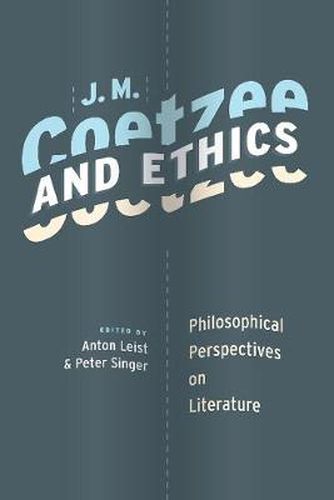Readings Newsletter
Become a Readings Member to make your shopping experience even easier.
Sign in or sign up for free!
You’re not far away from qualifying for FREE standard shipping within Australia
You’ve qualified for FREE standard shipping within Australia
The cart is loading…






In 2003, the South African writer J. M. Coetzee was awarded the Nobel Prize in Literature for a tradition of work that questioned widely shared ethical assumptions. In his portrayal of racial repression, sexual politics, the guises of reason, and human beings’ hypocrisy toward animals and nature, Coetzee had become, in the words of the prize committee, a scrupulous doubter, ruthless in his criticism of the cruel rationalism and cosmetic morality of western civilization. Tackling Coetzee’s extensive and extraordinary corpus and paying particular attention to the author’s representation of the human-animal relationship, Anton Leist and Peter Singer deeply explore Coetzee’s impact on ethical theory and philosophy. They assemble an outstanding group of contributors who debate the personally ethical and political through the prism of Coetzee’s work. They also confront the elementary conditions of life, the origins of morality, the recognition of value in others, the sexual dynamics between men and women, and the possibility of equality in a postcolonial society. With its wide-ranging consideration of philosophical issues, especially in relation to literary texts, this volume stands alone in its extraordinary dialogue between ethical inquiry and narrative technique.
$9.00 standard shipping within Australia
FREE standard shipping within Australia for orders over $100.00
Express & International shipping calculated at checkout
In 2003, the South African writer J. M. Coetzee was awarded the Nobel Prize in Literature for a tradition of work that questioned widely shared ethical assumptions. In his portrayal of racial repression, sexual politics, the guises of reason, and human beings’ hypocrisy toward animals and nature, Coetzee had become, in the words of the prize committee, a scrupulous doubter, ruthless in his criticism of the cruel rationalism and cosmetic morality of western civilization. Tackling Coetzee’s extensive and extraordinary corpus and paying particular attention to the author’s representation of the human-animal relationship, Anton Leist and Peter Singer deeply explore Coetzee’s impact on ethical theory and philosophy. They assemble an outstanding group of contributors who debate the personally ethical and political through the prism of Coetzee’s work. They also confront the elementary conditions of life, the origins of morality, the recognition of value in others, the sexual dynamics between men and women, and the possibility of equality in a postcolonial society. With its wide-ranging consideration of philosophical issues, especially in relation to literary texts, this volume stands alone in its extraordinary dialogue between ethical inquiry and narrative technique.